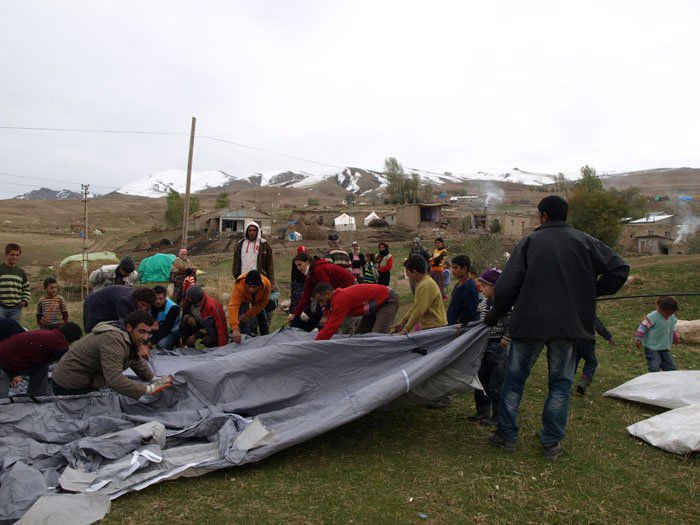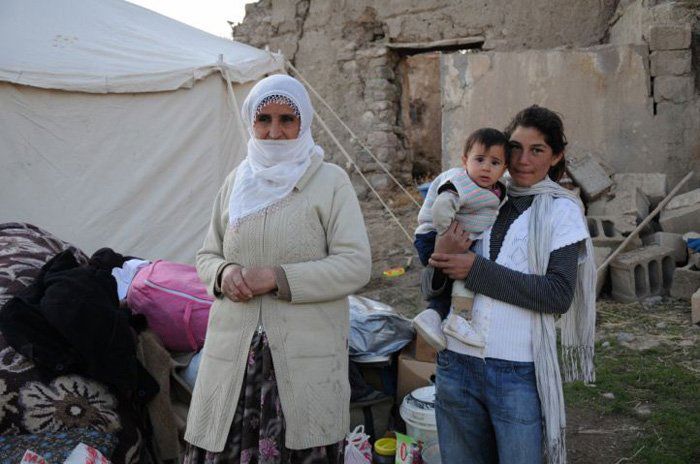Since the earthquake struck southeast Turkey on October 23rd, Médecins Sans Frontières (MSF) teams - in collaboration with local organisations - have distributed 2,000 winterised tents and 2,000 cooking kits to 12,000 people living in Van and Ercis, the cities most affected by the quake.
“The population is still suffering aftershocks and they are very scared of going back to their homes. Also, it has started to snow and these people are very worried about the lack of shelter with winter coming”, explains Guillem PÉREZ, emergency coordinator. “Temperatures are very low at night, the current situation persists, and it will take months before their lives go back to normal”, he adds.
MSF will provide the affected population in Van and Ercis with psychosocial support through local psychologists in the next days. MSF will also set up a reference system so that those living in rural areas who need specialised assistance can receive it in the hospitals. MSF also plans to train national staff.
The pre-existing health system was strong and is therefore responding well to medical needs. However, an MSF team will remain for at least the next two months, to be able to respond to any new needs that may arise, once the first phase of the emergency is over.
“The population is still suffering aftershocks and they are very scared of going back to their homes. Also, it has started to snow and these people are very worried about the lack of shelter with winter coming”, explains Guillem PÉREZ, emergency coordinator. “Temperatures are very low at night, the current situation persists, and it will take months before their lives go back to normal”, he adds.
MSF will provide the affected population in Van and Ercis with psychosocial support through local psychologists in the next days. MSF will also set up a reference system so that those living in rural areas who need specialised assistance can receive it in the hospitals. MSF also plans to train national staff.
The pre-existing health system was strong and is therefore responding well to medical needs. However, an MSF team will remain for at least the next two months, to be able to respond to any new needs that may arise, once the first phase of the emergency is over.



